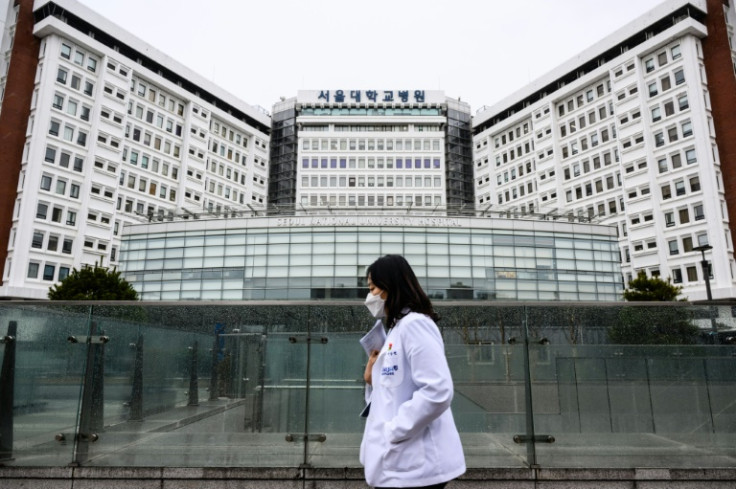
Most striking doctors have not returned to work despite a deadline, South Korea's health minister said Thursday, warning of legal action if medics do not end work stoppages that have plunged hospitals into chaos.
Nearly 10,000 junior doctors -- about 80 percent of the trainee workforce -- handed in notice and walked off the job last week to protest government plans to sharply increase medical school admissions to cope with shortages and an ageing society.
Doctors say the plan would hurt the quality of service, and industry groups have slammed the government's "intimidation tactics".
Under South Korean law, doctors are restricted from striking, and the government threatened to arrest and suspend the medical licenses for medics who do not return to work by Thursday.
"If junior doctors return by the end of today, we will not hold them accountable," Health Minister Cho Kyoo-hong said in an interview with local SBS radio early Thursday.
Some trainee doctors who joined the walkout have subsequently returned to their hospitals, Cho said, but "a full-scale return has not yet materialised".
"As today is the last day of the return, I implore them to do so for the patients."
The mass work stoppage resulted in the cancellation and postponement of surgeries, chemotherapy and C-sections, with the government raising its public health alert to the highest level.
Cho said the government was committed to its reform plan, which would increase medical school admissions by 65 percent, citing shortages of health professionals and a looming demographic crisis.
"If we reduce the scope (of the increase)... it would delay the provision of required medical workforce," he said.
Polling shows up to 75 percent of the South Korean public support the reforms, and President Yoon Suk Yeol, who has taken a hard line on the striking doctors, has seen his approval ratings tick up ahead of an April legislative election.
Seoul says it has one of the lowest doctor-to-patient ratios among developed countries, and the government is pushing hard to admit 2,000 more students to medical schools annually, starting next year.
The health ministry requested on Tuesday that police launch a probe into people connected to the walkout, including five linked to the Korean Medical Association (KMA).
Proponents of the reform say doctors are mainly concerned the reforms could erode their salaries and social status.







